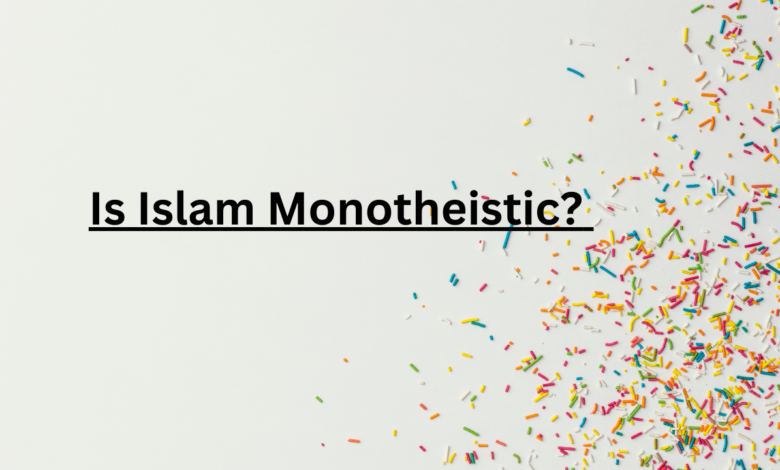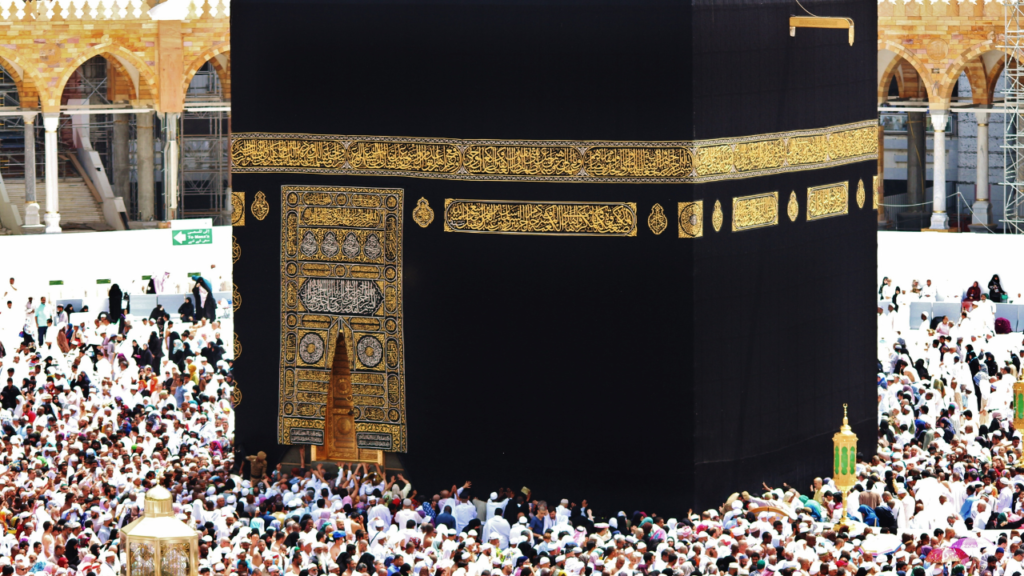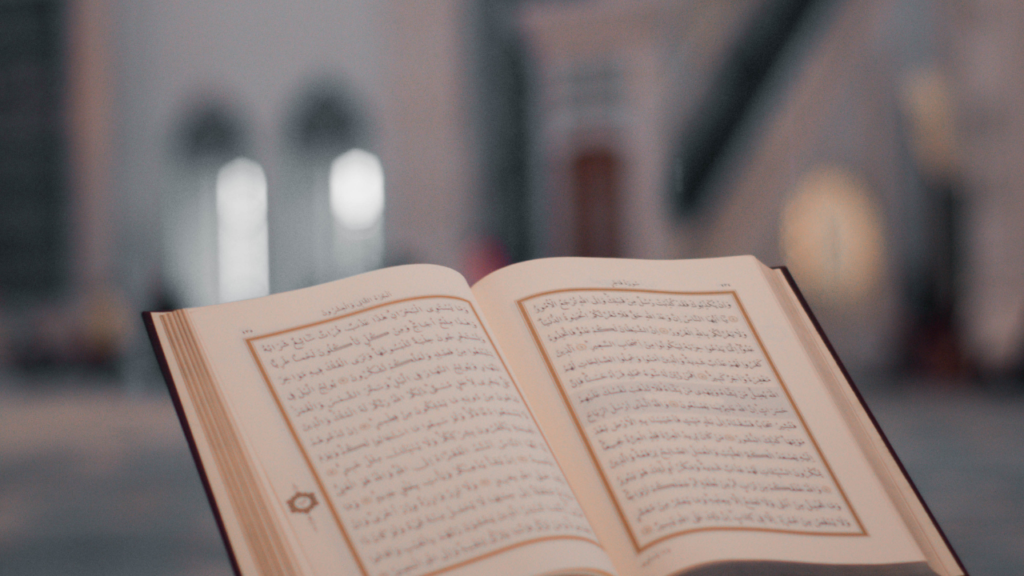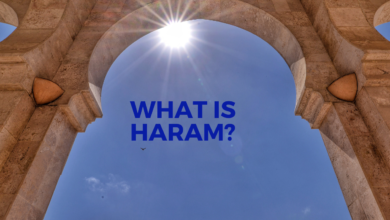
Is Islam Monotheistic?
Tawhid is the fundamental Islamic concept of the oneness and uniqueness of Allah, the one true God. It represents the belief that there is no god but Allah, and He is the sole creator, sustainer, and ruler of the universe.

Introduction
Islam is one of the world’s major religions, with over a billion followers worldwide. Central to its beliefs is the concept of monotheism, the belief in the existence of only one God, known as Allah in Arabic. Monotheism is a fundamental pillar of Islamic theology, and Muslims take great pride in their commitment to the oneness of God. In this article, we will explore the monotheistic nature of Islam, its historical development, and its implications for Muslim faith and practice.
The Concept of Tawhid
The concept of monotheism in Islam is known as “Tawhid.” Tawhid is derived from the Arabic root word “w-h-d,” which means “to make one” or “to unify.” In Islamic theology, Tawhid refers to the belief in the absolute oneness and uniqueness of Allah. Muslims believe that Allah is the sole creator, sustainer, and ruler of the universe. There is nothing and no one that shares in His divinity or power.
The Quran, which Muslims believe to be the literal word of Allah as revealed to the Prophet Muhammad, emphasizes the concept of Tawhid repeatedly. One of the most well-known verses that highlights this concept is found in Surah Al-Ikhlas (Chapter 112), which states, “Say, ‘He is Allah, [Who is] One, Allah, the Eternal Refuge. He neither begets nor is born, nor is there to Him any equivalent.‘”
Also check.
- Why is Pork Haram in Islam?
- What is a gin in Islam?
- What is Shirk in Islam
- Who are Kiraman Katibin in Islam?
- Is Oreo Halal?
Historical Context
Before the advent of Islam, the Arabian Peninsula was a region marked by the worship of multiple deities and idols. Polytheism was prevalent, and various tribes and communities had their own gods and goddesses. In this context, the message of monotheism delivered by the Prophet Muhammad was revolutionary.
Muhammad’s call to worship only one God and reject the idols led to significant social and religious changes in Arabia. The Kaaba, a sacred shrine in Mecca that had housed numerous idols, was cleansed of its idols and rededicated to the worship of the one true God, Allah. This marked a profound shift towards monotheism in the region.
The Oneness of Allah in Practice
The belief in Tawhid not only informs the theological foundation of Islam but also shapes the daily lives of Muslims. Islamic worship, rituals, and ethical principles are all based on the concept of monotheism.
- Prayer (Salat): Muslims are required to perform five daily prayers facing the Kaaba in Mecca as a way to maintain a direct connection with Allah. These prayers are a reminder of Allah’s oneness and His central place in a Muslim’s life.
- Zakat (Charity): One of the Five Pillars of Islam, zakat is the mandatory giving of alms to the poor and needy. It reflects the belief that wealth is a trust from Allah, and Muslims are expected to share their resources with those less fortunate.
- Fasting (Sawm): During the holy month of Ramadan, Muslims fast from dawn until sunset. This act of self-discipline is a means of spiritual purification and a reminder of their dependence on Allah.
- Hajj (Pilgrimage): Muslims who are physically and financially able are required to make a pilgrimage to Mecca at least once in their lifetime. The Hajj is a journey of spiritual purification and unity with other Muslims, emphasizing the centrality of Allah.
Conclusion
In conclusion, Islam is unequivocally a monotheistic religion. The concept of Tawhid, or the belief in the absolute oneness of Allah, is at the core of Islamic faith and practice. This belief has historical roots in the Arabian Peninsula, where it challenged the prevailing polytheistic traditions, and it continues to shape the lives of over a billion Muslims today. The monotheistic nature of Islam is evident in its theology, rituals, and ethical principles, all of which revolve around the worship of the one true God, Allah.

FAQs
What is Tawhid in Islam?
Tawhid is the fundamental Islamic concept of the oneness and uniqueness of Allah, the one true God. It represents the belief that there is no god but Allah, and He is the sole creator, sustainer, and ruler of the universe.
How does Islam emphasize monotheism in its teachings?
Islam emphasizes monotheism through its holy scripture, the Quran, which repeatedly emphasizes the oneness of Allah. Islamic rituals, prayers, and ethical principles are all based on the belief in Tawhid.
Can you explain the historical context of monotheism in Arabia before Islam?
Before the advent of Islam, Arabia was characterized by polytheism, with various tribes and communities worshiping multiple deities and idols. The arrival of Islam marked a shift from polytheism to monotheism in the region.
What role does the Prophet Muhammad play in promoting monotheism in Islam?
The Prophet Muhammad is considered the final messenger of Allah in Islam. He played a crucial role in delivering the message of monotheism, calling people to worship only one God and reject idolatry.
How do Muslims practice monotheism in their daily lives?
Muslims practice monotheism by performing daily prayers (Salat), giving to charity (Zakat), fasting during Ramadan (Sawm), and undertaking the pilgrimage to Mecca (Hajj). These rituals and ethical principles are all rooted in the belief in the oneness of Allah.
Is there room for religious diversity within Islam’s monotheistic framework?
While Islam is monotheistic, it recognizes the existence of other monotheistic religions and respects the religious diversity of humanity. Islam teaches that there should be no compulsion in matters of faith (Quran 2:256) and encourages peaceful coexistence with people of other beliefs.
Are there any sects or denominations within Islam that interpret monotheism differently?
Yes, within Islam, there are various sects and schools of thought that may have different interpretations of certain aspects of monotheism and religious practices. However, the core belief in the oneness of Allah remains consistent across these groups.
How does monotheism influence Islamic ethics and morality?
Monotheism in Islam serves as a moral compass, guiding Muslims to lead righteous lives, adhere to ethical principles, and treat others with kindness and compassion. The belief in one God is intricately connected to the concept of accountability in the hereafter.
What is the significance of the Kaaba in Islam’s monotheistic beliefs?
The Kaaba in Mecca is considered the most sacred site in Islam. It represents the monotheistic shift in Arabia, as it was cleansed of idols by the Prophet Muhammad and rededicated to the worship of the one true God, Allah.
How do Muslims view religious pluralism in a world of diverse beliefs and faiths?
Muslims are encouraged to engage respectfully with people of different faiths and to peacefully coexist. Islam teaches that the ultimate judgment of religious beliefs rests with Allah, and individuals are responsible for their own faith and actions.




